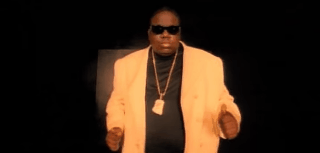(Editor’s Note: Micah Drago is a 22-year old writer that recently listened to Ready To Die (read the review here) and Life After Death for the first time this year.)
 (AllHipHop Special Review) Ready to Die was a great album, but I came into Life After Death with reservations for two reasons: it’s really long and it doesn’t get as much praise. For a lot of artists, 2-disc albums end up being career lows, and a debut album as great as Ready to Die pretty much guarantees an underwhelming second album.
(AllHipHop Special Review) Ready to Die was a great album, but I came into Life After Death with reservations for two reasons: it’s really long and it doesn’t get as much praise. For a lot of artists, 2-disc albums end up being career lows, and a debut album as great as Ready to Die pretty much guarantees an underwhelming second album.
In reality, I was pleasantly surprised with Life After Death. While it doesn’t have the same punchy beats and ferocious punchlines, B.I.G. used his second album as an opportunity to branch out and explore various musical styles, and the result left me wishing I could see the direction he took with his subsequent albums.
That’s not to say Life After Death didn’t have its flaws. To me, the biggest drawback of many ‘90s albums was the simplistic rhyming. A lot of rappers showed flashes of complex, multisyllabic rhymes, but I often find myself wishing they had showcased those skills more consistently. In that sense, I think rap has consistently evolved, but (to me) Life After Death didn’t feel like years of progression.
As far as features go, this album delivers. On “Last Day,” Jada and Styles deliver devastating verses that would later become their trademarks. And in the second head-to-head sparring of their rap careers, Biggie and Jay effortlessly display their lyrical ability over a smooth Easy Mo Bee beat.
One thing that interested me when I listened to this album was Biggie’s musical talent. When it comes to the Biggie vs. Tupac debate, a lot of people seem to agree that Tupac had a bigger impact, but Biggie was better lyrically. But I think their ability to make great music was overlooked. Songs like “Playa Hater” make me wonder about the direction B.I.G. might have taken a decade later, and what kind of influence he might have had on the more melodic direction today’s hip-hop has taken.
All that said, as much as I wanted Life After Death to match the quality of Biggie’s debut album, it just isn’t really for me. I enjoy good music, but above all, clever, carefully crafted lyrics are what draw my attention, and Ready to Die really felt like a hungrier Biggie who was out to prove he was one of the best. With a double platinum debut album on his hands, B.I.G. had already solidified his spot as one of the best in the game.
But at the end of the day, it’s hard to be disappointed with an album this good. There are spots where Biggie showcases his expert lyricism, but he also provides plenty of innovative music that proved he wasn’t just clever — he was one of the best to ever touch a mic.
